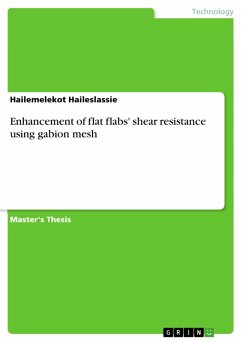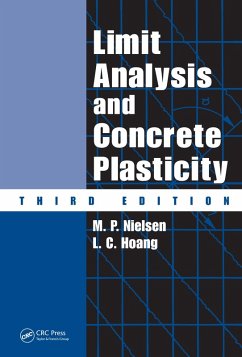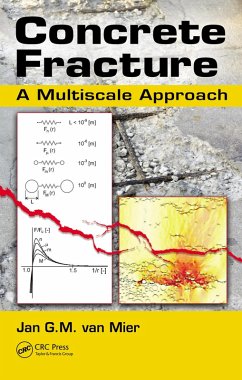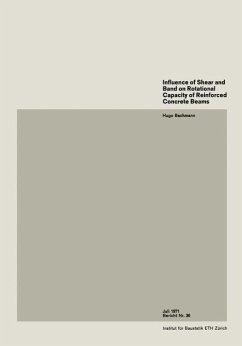
Enhancement of flat flabs' shear resistance using gabion mesh (eBook, PDF)
Sofort per Download lieferbar
Statt: 42,95 €**
29,99 €
inkl. MwSt. und vom Verlag festgesetzt.
**Preis der gedruckten Ausgabe (Broschiertes Buch)
Alle Infos zum eBook verschenkenWeitere Ausgaben:

PAYBACK Punkte
0 °P sammeln!
Master's Thesis from the year 2018 in the subject Engineering - Civil Engineering, grade: very good, Mekelle University (Ethiopian Institute of Technology), course: Msc in structural engineering, language: English, abstract: This thesis presents study of punching shear capacity of flat slab-column junctions. A three dimensional nonlinear finite element program based on 8 node solid elements was used to carry out the nonlinear analysis of flat-slab models with and without gabion-mesh. The effect of gabion arrangements for punching and the ultimate load prediction for each was presented in this ...
Master's Thesis from the year 2018 in the subject Engineering - Civil Engineering, grade: very good, Mekelle University (Ethiopian Institute of Technology), course: Msc in structural engineering, language: English, abstract: This thesis presents study of punching shear capacity of flat slab-column junctions. A three dimensional nonlinear finite element program based on 8 node solid elements was used to carry out the nonlinear analysis of flat-slab models with and without gabion-mesh. The effect of gabion arrangements for punching and the ultimate load prediction for each was presented in this thesis. The results obtained from abaqus were compared to code prediction results, and the failure mode also compared to experimental and code predicted failure modes. The predicted mode of failure and other responses are in a good correlation to euro code predicted values. In addition to punching gabion has greater resistance to flexure by increasing the stiffness of the slab. Finally it is concluded that using hexagonal gabion mesh at tension part is easy, effective and can solve construction difficulty of drop panels and one layer gabion can reduce 10mm of slab thickness. Punching strength is a critical point in the design of flat slabs and due to the lack of a theoretical method capable of explaining this phenomenon, empirical formulations presented by codes of practice are still the most used method to check the punching resistance of slab-column connections. Flat slab is a reinforced concrete slab supported directly by concrete columns without the use of beams. This type of slab is appropriate for most floor situations and also for irregular column layouts. Because of its aesthetic view, simplicity for construction, reduction of foundation cost, this becomes very common and competitive structural system for cast-in-place slabs in buildings. Flat plates allow easy and flexible partitioning of space and reduce the overall height of tall buildings. But since the load is directly transferred from slab to column due to high localized force at the column punching effect or punching shear failure is critical. This type of failure is catastrophic because no visible signs are shown prior to failure. To increase the punching resistance of the flat slab several methods have been used, such as drop panel, column capital, column head and shear reinforcements such as shear stud and stirrups. In our country Ethiopia the first three mechanisms are used to increase the resistance of punching shear in flat slabs but shear reinforcements are being used in other countries such as America and British.
Dieser Download kann aus rechtlichen Gründen nur mit Rechnungsadresse in A, B, BG, CY, CZ, D, DK, EW, E, FIN, F, GR, HR, H, IRL, I, LT, L, LR, M, NL, PL, P, R, S, SLO, SK ausgeliefert werden.













